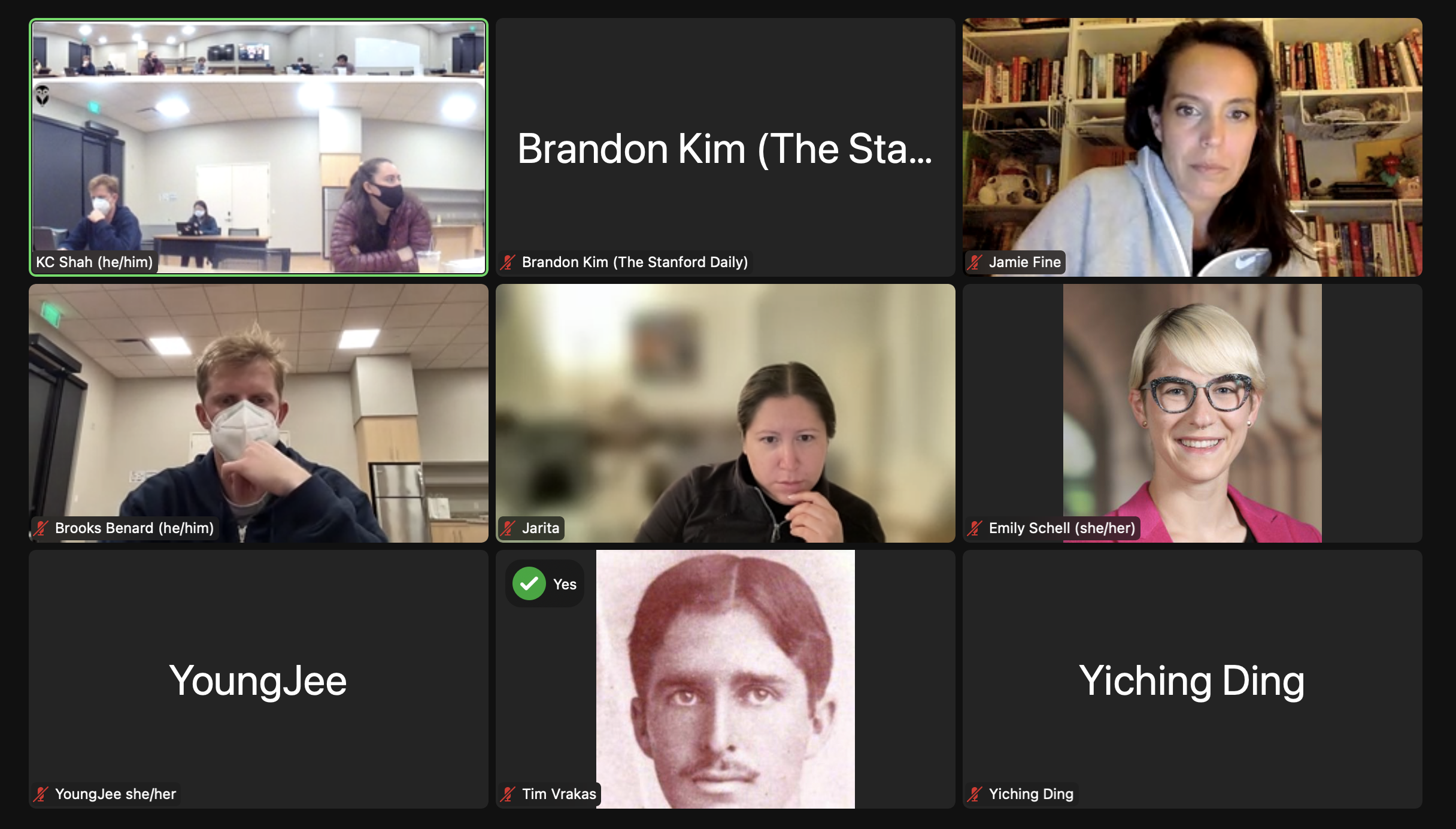The Graduate Student Council (GSC) expressed support for a bill that would hold faculty accountable for providing academic accommodations granted to students by the Office of Accessible Education (OAE) in their Wednesday meeting. Still, councilors raised questions about the bill’s effectiveness.
The bill, titled The Office of Accessible Education Faculty-Academic Accountability Act, was introduced by undergraduate senator Marion Santo ’23 and was passed unanimously in the Undergraduate Senate last week.
By joining the Senate in passing the bill as a joint resolution, the GSC would be asking the Associated Students of Stanford University (ASSU) and the Faculty Senate to “provide resources for the OAE to create a form through which students may report negative accommodations process experiences,” according to its text. Faculty deemed by the OAE to be noncompliant, as indicated by the form, would be subject to accessibility training if the University took heed of the recommendation.
Councilors felt that the bill was generally well-intended, but ultimately decided to wait for comment from the OAE about the bill’s contents before moving forward to vote. Councilors shared confusion about the specific purpose of the bill and the extent to which the OAE could facilitate student access to accommodations.
Several councilors also expressed concerns about the bill’s language and the accuracy of the evidence provided in favor of the bill. Councilor and fourth-year Ph.D student in education Jarita Greyeyes questioned the bill’s assertion that “many professors resist and/or deny OAE accommodations,” and asked if the bill could be revised to avoid generalizations.
While councilor and fourth-year developmental and psychological sciences Ph.D student Emily Schell agreed that revisions to the bill were likely necessary, she questioned whether there would be any harm in voting to support it anyway. Waiting for more information about the resolution, Schell said, could give off the appearance that the GSC was “sidestepping these important issues.”
Councilor Chloe Glikbarg ’21 M.S. ’22 questioned the bill’s potential effectiveness, encouraging councilors to consider other mechanisms to prevent tenured professors from using their power to resist implementing accommodations for students who need them. Even if the GSC were to vote in the bill’s favor, Glikbarg contended that targeting the Faculty Senate would have little impact on awareness of accommodations given that the senate has likely already heard student concerns about the issue.
Councilors also raised concerns about the lack of culturally diverse food options on campus.
According to councilor and sixth-year Ph.D. student in mechanical engineering Yiqing Ding, who is an international student from China, Residential and Dining Enterprises (R&DE) representatives explained to Ding and Schell in a meeting earlier this week that dining halls were scaling back on diverse selections following complaints from several undergraduate students that food selection in the dining halls was becoming “too Asian.” When the two councilors asked why the opinions of the broader student body had not been taken into account, the representatives responded that they had already polled the student community regarding dietary concerns, Schell said.
GSC co-chair K.C. Shah J.D. ’22 pointed out that these complaints could be little more than faulty anecdotal evidence and questioned why R&DE would incorporate these complaints in their decision-making process.
The Daily has reached out to R&DE for comment.
This article has been updated to more accurately reflect comments made by councilors regarding R&DE. The Daily regrets this error.
